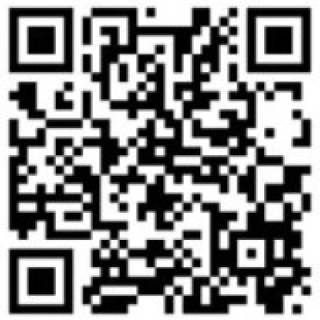Changemakers project launched in UCL Statistical Science – recruiting students to work with us now!
12 December 2023
To raise awareness of the significance of the department as a starting place of the practice of eugenics, and get a team of students to critically engage with this knowledge in a way that helps us all to understand the world around us better in the light of this knowledge.
What change are we hoping to make?
To raise awareness of the significance of the department as a starting place of the practice of eugenics, and get a team of students to critically engage with this knowledge in a way that helps us all to understand the world around us better in the light of this knowledge. Overall, this process is intended to give the students the agency to shape a better future where past mistakes are not repeated. Part of the process will be reflection, and the students will design their own methods of response to their new knowledge. This is particularly important because the subject they chose to study has this history, rather than it being unrelated.
UCL issued an apology on 7th Jan 2021, where it stated that it wanted to confront and address its legacy of eugenics, which means that this project fits with one strategic direction of the university. This project builds on work that has already taken place in the Department of Statistical Science. We have used departmental funds to put up a plaque on the wall beneath a bust of Pearson to educate students about the horrendous repercussions of his statistical endeavours in eugenics. During the inductions the HoD gives a talk about the history of the department which includes a section on eugenics. The workshops project develops key themes and ideas that still need to be addressed in collaboration with students. It is vital that student voice and student agency should lead on what the UCL community should be doing to show that it IS confronting and addressing the legacy and so this project has an important role in exploring this.
What benefits are there to students who take part?
Students who take part will develop an understanding of the past injustices caused by their specific subject, Statistical Science. This is part of a wider trend which is happening at universities around the world where people are reexamining their history from a more critical perspective. This is helpful to our students as they will become part of this new practice.
Due to the above learning, this helps students to move into humanitarian careers, where their knowledge and experience will be very valuable in ensuring people are treated with dignity and respect when moving through systems and in contact with governments and other authorities. To give an example, the way that healthcare is organised has in many places been closely intertwined with eugenics ideology and practice, and has caused suffering, even in fairly recent times. Being able to identify this, and invent ways of doing things differently, or creatively getting others to pay attention to the fact that it’s even going on, are a few skills students could take away from these workshops.
In short, these workshops will give the students the ability to be able to see where eugenics leads to harm, and work out ways to prevent this, or stop it where it’s happening still now.
It’s something that will set the students apart from other graduates and would show very well their commitment to building a positive future.
We have funding available to pay a stipend to students who take part. This is a total of £1300 split between participants.
Who are you and what are you doing?
I am Stephanie Dickinson from the Department of Statistical Science professional services team. I work in the Teaching and Learning team as an Administrator, which led me to discover the history of the department I work in through tidying objects in storage. I was quite surprised at what I found out and decided to try to learn more and engage with other staff at UCL who are reflecting critically on the eugenics history of the institution. From this engagement came an idea for the workshops, which we are now running for the first time in Spring 2024.
My role is facilitator, I need to check in, make sure it is working, while also giving students autonomy. I would encourage the students in a partnership to use their perspectives to teach others, e.g. the staff at UCL, as a dispersal of the power relations. I intend to take the students to visit some primary sources to get their own understanding of them. e.g. I will take them to look in the Special Collections at the material we donated/other materials already there which have a clear eugenics connection. The students will be able to see for themselves the actual objects involved in the history that UCL is tackling.
Who else is involved?
We are being supported by the Eugenics Legacy Education Project.
Following recruitment, volunteers will receive an information pack (with ELEP) to ensure that they are fully informed about
· Project rationale
· Project aims
· Project outcomes
· Confidentiality
· Further support
How can I sign up?
These workshops are currently only available to Statistical Science students (who are part of this department at UCL taking one of our programmes: https://www.ucl.ac.uk/statistics/department-statistical-science
If you are one of our students, at any level (UG, PGT, PhD) you can leave your email here to attend one of our intro sessions (exact dates and times TBC, but one will be in week 16 and the other will be in week 20)
https://www.surveymonkey.com/r/RZBYJJJ

We are particularly looking for interest from marginalised and underrepresented groups whose involvement is very important in decision making as part of wider eugenics reckonings. We are committed to inclusivity and accessibility of all of our events and will endeavour to make adjustments to accommodate engagement from everyone who wants to participate.
 Close
Close

